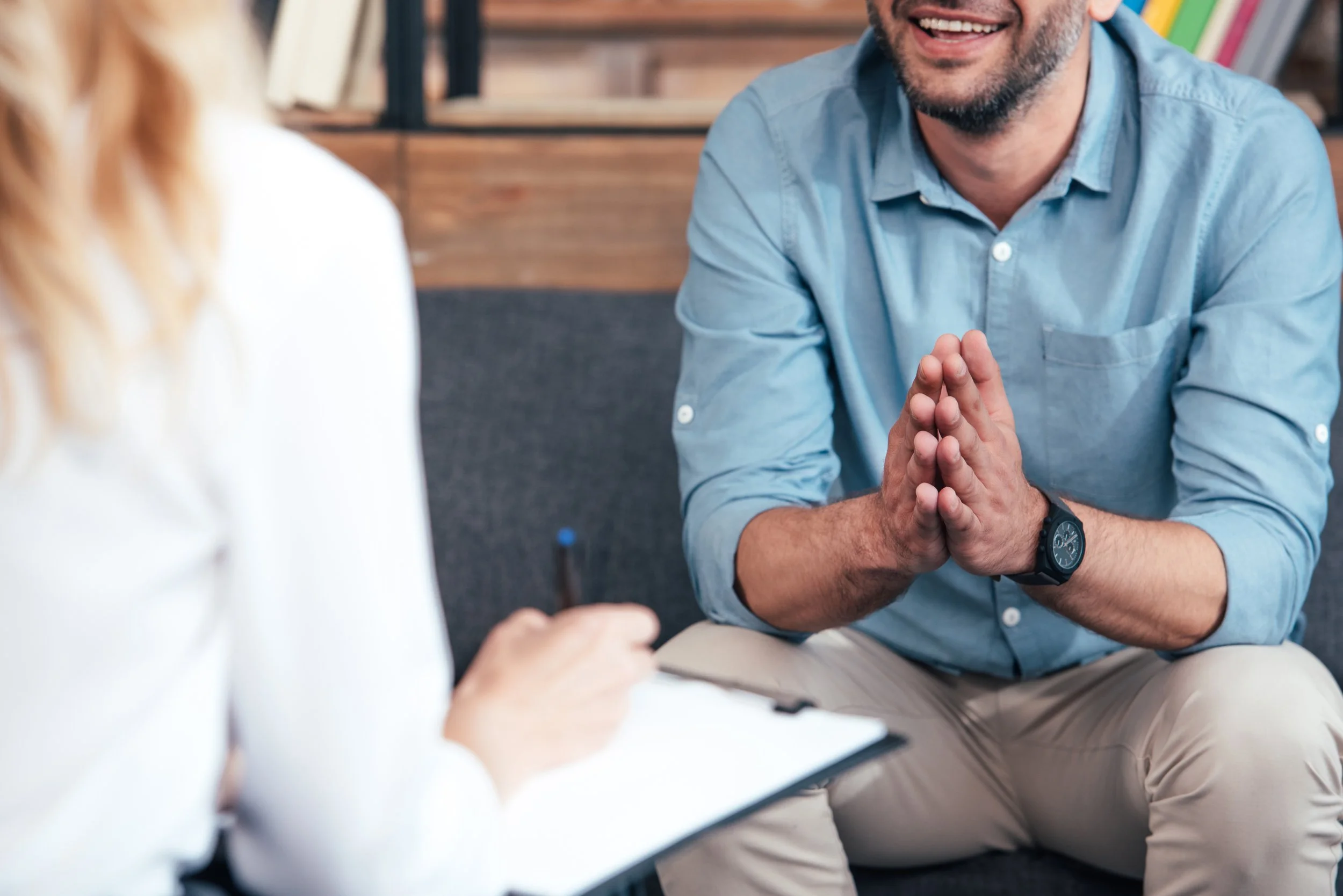What to Expect in Your First Therapy Session
What to Expect in Your First Therapy Session
You’ve picked a therapist and have scheduled your first appointment. Now, you’re wondering what your first session will be like. First of all, it takes courage to recognise there’s a problem and to ask for help, and that step deserves to be acknowledged.
If you’re feeling anxious, nervous and unsure about what to expect – or if therapy will help –you’re not alone. Those feelings are very common before starting therapy.
The First Conversation
In your first session, your therapist’s main goal is to get to know you. They will likely ask why you came to therapy, what you hope to get from it, and why you decided to start now. Many people live with difficulties for some time before seeking help, so understanding why now feels like the right time is useful context.
Your therapist may also ask about your background and history. This may involve questions about your childhood and upbringing, family, medical or psychiatric history, and what your life looks like at the moment. This information helps build a picture of who you are and what has brought you into therapy.
It’s very important to discuss your goals for therapy in this first session. That can be hard – and that’s completely normal. Sometimes people come knowing something feels wrong, but aren’t sure what it is or what to work on specifically; identifying goals can itself be the work of the first few sessions. This process is collaborative; you and your therapist should be on the same page about what to focus on and how to proceed.
Common Concerns
“What if I don’t know what to say?”
This is completely fine. If it helps, you can jot down a few main concerns beforehand. However, if you’re unsure, your therapist can guide the conversation with questions.
“Will I have to tell my therapist everything about myself in one go?”
No. There’s no pressure to disclose your whole life in the first session. Therapy unfolds over time. For now, think about the main issues you want your therapist to know.
“What if I get too emotional?”
It’s understandable to become emotional when talking about difficult things. Your emotions are welcome and part of the process.
“What if I don’t feel a connection or like my therapist?”
Finding a therapist that fits you isn’t always immediate. Trial and error is common. If you don’t feel a connection after the first session, there are a few possibilities: you may need more time to get used to therapy and/or your therapist; the therapist’s style might not suit you; or the therapeutic relationship may be bringing up difficult feelings that are important to work through within therapy (Prasko et al., 2010). Give it a few sessions to see whether your impression changes. If you still feel it’s not the right match, it’s okay to look for someone else – and your therapist can often help with a referral.
After Your First Session
People react in different ways after their first session – relieved, tired, reassured, thoughtful, or even anxious about what comes next. There are no right or wrong reactions. Your therapist may ask you how you’re feeling at the end of the session; it’s helpful to share that with them. It’s also a good time to discuss whether and how often you’ll continue, and what to expect next.
Take care of yourself afterwards: do something relaxing or enjoyable, or spend some time to reflect on the session you just had.
Final Thoughts
Acknowledge the courage it took to make your first appointment. Starting therapy is important inner work, and it’s normal not to have everything figured out in the first session. Therapy isn’t a quick fix – go at your own pace, and allow the process to unfold.
Article written by Luvena Susanto, Clinical Psychologist
References
Prasko, J., Diveky, T., Grambal, A., Kamaradova, D., Mozny, P., Sigmundova, Z., Slepecky, M., & Vyskocilova, J. (2010). Transference and countertransference in cognitive behavioral therapy. Biomedical Papers, 154(3), 189-197.

